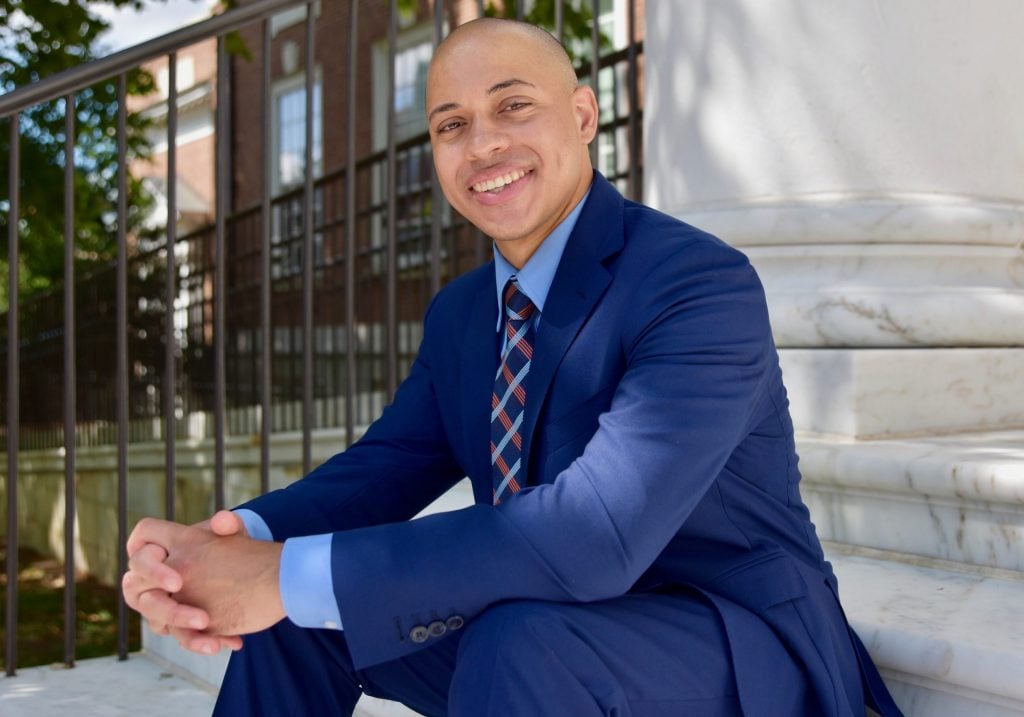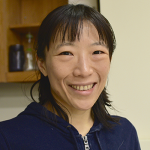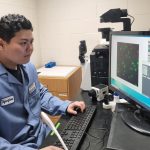Lab-Grown Meat, Fungus-Based Ice Cream

Food of the Future course led by Franklyn Hall explores the new range of meats, milks, and cheeses developed using cellular manipulation and emerging technology
When the opening to teach an intersession course on the alternative food scene became available, Franklyn Hall jumped at the opportunity to combine knowledge from his previous undergraduate coursework in chemical engineering with his current work as a biomedical engineering PhD candidate at Johns Hopkins.
“My PhD research heavily involves stem cell research, and I saw this as a great opportunity to learn about new types of differentiations and applications of this technology outside of medical research,” Hall said.
Plant-based meats, milks, and cheeses are just some of the products that have been popping up on store shelves across the country. But what exactly goes into producing them?
Students who took Food of the Future, a course offered last month through the university’s Intersession program, got an inside look at the booming plant-based and cultivated meat industries and learned the science behind some of the methods of creating these products. Taught by Hall and PhD students Lauren Blake and Molly Gordon, the course focused on exposing students to the environmental impacts of current food production methods, the economics driving the alternative food industry, and areas of opportunities for innovation.
The bulk of the course was spent making students aware of advanced technologies that have either been newly discovered within the alternative food scene, or are being adapted from medical research and applied to this industry.
“A significant barrier to the commercialization of cultivated meat technology is the mass production of cells necessary to create an affordable consumer product,” Hall said. “For example, the first lab-grown burger by Mosa Meat cost close to $325,000.”
First taught during the Intersession program in 2021, this year’s course focused on bioengineering principles, including genetic engineering and tissue engineering, that are used to produce sustainable sources of proteins, fats, and cultured meats.
“More specifically, some of the topics we explored included biophysical considerations in creating plant-based foods, bioprocess design and metabolic/strain engineering of microbes for proteins through fermentation, and stem cell differentiation and scaffolding technology for producing cell-based meats,” Hall said.
Like most of this winter’s intersession courses, Food of the Future was taught in a virtual format, with daily lectures and guest speakers from leaders in the industry, including Arjun Iyer, academic community coordinator at The Good Food Institute; James Dolgin, product developer at Dipole Materials; and Noah Yan, a Johns Hopkins alum and project manager at New Age Meats.
“This year, we also distributed sample products from promising fledgling companies in the alternative food space, such as plant-based vegan cheese from Miyoko’s, plant-based jerky from Primal Spirit Foods, and dairy-free ice cream made with protein from bioengineered fungus sold by Brave Robot,” Hall said. (Students picked up the samples on campus and consumed them at home.)
The course concluded with the creation of marketing pitch presentations for new products or research ideas in the alternative protein space. Some of this year’s pitches include a meat-textured, plant-based protein alternative produced using AC electric field to grow aligned protein fibers in a liquid bath; manufactured Omega-3 from microorganisms for fish substitutes; and using CRISPR-Cas9 for selective mutagenesis for improved plant-based crop yield.
“In the future, this course aims to add a lab component that will allow students to observe the science in action and provide alternative ways to make food at their own homes,” Hall said. “Additionally, we would like to increase our engagement with the alternative food companies within the [D.C., Maryland, and Virginia] area, and visit at least one facility that features technology covered in this course.”
Story by Sara Tarney and appeared on the Johns Hopkins Hub.





